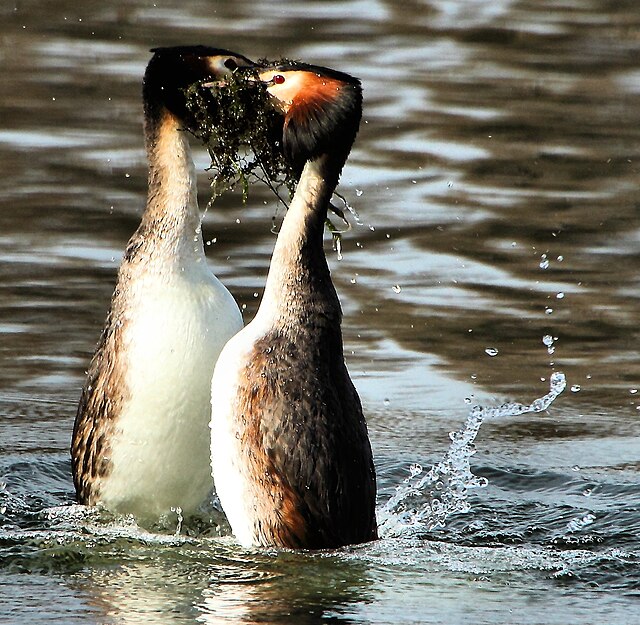Waggle dance is a term used in beekeeping and ethology for a particular figure-eight dance of the honey bee. By performing this dance, successful foragers can share information about the direction and distance to patches of flowers yielding nectar and pollen, to water sources, or to new nest-site locations with other members of the colony.
Workers of Apis mellifera carnica on honeycomb
Ethology is a branch of zoology that studies the behaviour of non-human animals. It has its scientific roots in the work of Charles Darwin and of American and German ornithologists of the late 19th and early 20th century, including Charles O. Whitman, Oskar Heinroth, and Wallace Craig. The modern discipline of ethology is generally considered to have begun during the 1930s with the work of the Dutch biologist Nikolaas Tinbergen and the Austrian biologists Konrad Lorenz and Karl von Frisch, the three winners of the 1973 Nobel Prize in Physiology or Medicine. Ethology combines laboratory and field science, with a strong relation to neuroanatomy, ecology, and evolutionary biology.
Great crested grebes perform a complex synchronised courtship display.
Male impalas fighting during the rut
Charles Darwin (1809–1882) explored the expression of emotions in animals.
Kelp gull chicks peck at red spot on mother's beak to stimulate regurgitating reflex





